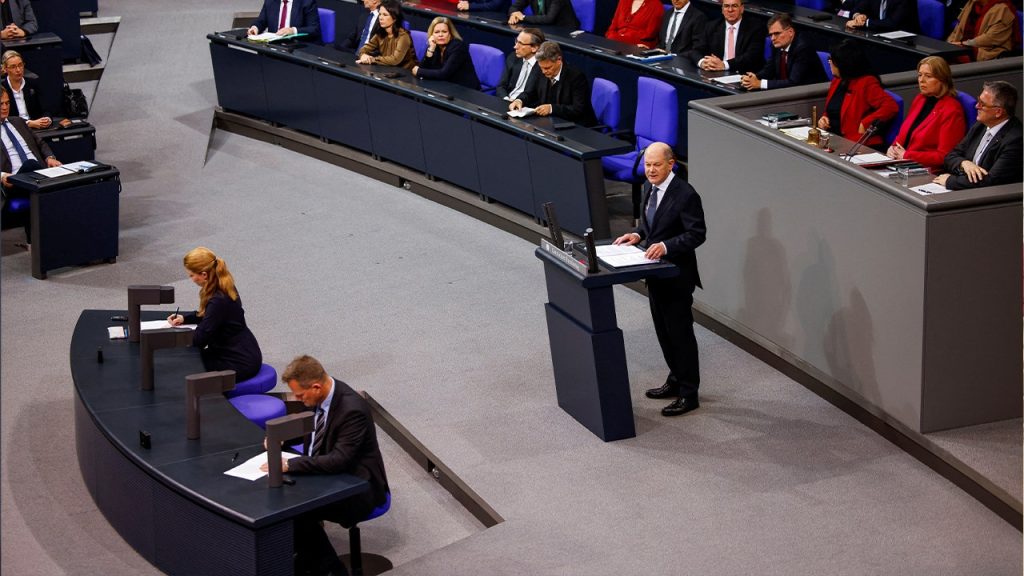The German political landscape underwent a significant shift in early 2024 as Chancellor Olaf Scholz’s three-party coalition government collapsed, triggering an early federal election scheduled for February 23rd. The proximate cause of the government’s demise was the withdrawal of the pro-market Free Democrats (FDP) from the coalition over disagreements concerning debt management. This left Scholz’s Social Democrats (SPD) and their Green Party partners without a parliamentary majority, a precarious situation given Germany’s burgeoning economic challenges. The collapse necessitated a carefully orchestrated process to dissolve parliament and call for new elections, adhering to constitutional safeguards designed to prevent the political instability that plagued the Weimar Republic and contributed to the rise of Nazism. President Frank-Walter Steinmeier, following established protocol, could only dissolve parliament after Scholz formally requested a vote of no confidence and subsequently lost it, thereby paving the way for the snap election.
The vote of no confidence, a necessary procedural step, transformed into a platform for early campaigning. Scholz and his primary challenger, Friedrich Merz, leader of the conservative Christian Democratic Union (CDU), engaged in heated exchanges, accusing each other of incompetence and lacking a clear vision for Germany’s future. Scholz, who would lead a caretaker government until the formation of a new administration, defended his leadership during various crises, particularly highlighting his handling of the economic and security fallout from Russia’s invasion of Ukraine. He pledged, if re-elected, to prioritize investments in Germany’s aging infrastructure, contrasting his approach with the spending cuts he attributed to the conservative platform.
Merz, in turn, criticized Scholz’s spending plans as burdensome for future generations, accusing him of fiscal irresponsibility. He also targeted Scholz’s record on defense spending, alleging a failure to adequately rearm Germany in response to the escalating tensions in Eastern Europe. Interestingly, neither Scholz nor Merz addressed the constitutional debt brake, a fiscal rule limiting government borrowing, which many economists believe has contributed to the deterioration of Germany’s infrastructure. The debate underscored the stark differences in economic policy between the leading contenders, setting the stage for a campaign focused on fiscal responsibility and the appropriate level of government investment.
Public opinion polls leading up to the election indicated a comfortable, though declining, lead for the CDU/CSU over the SPD. The far-right Alternative for Germany (AfD) polled slightly ahead of Scholz’s SPD, while the Greens trailed in fourth place. The presence of the AfD, which mainstream parties have consistently refused to partner with, complicated the potential coalition scenarios, increasing the likelihood of more complex and potentially unstable governing alliances after the election. The fragmented political landscape raised concerns about the future stability of German governments and the ability of diverse parties to effectively cooperate.
In the interim period before the election, Scholz proposed several measures that could potentially garner cross-party support, including tax cuts and an increase in child benefits. The conservatives also signaled potential support for measures aimed at reinforcing the independence of the Constitutional Court against potential threats from populist or anti-democratic forces, as well as extending a popular subsidized public transport initiative. Further measures addressing unintended tax burdens could also gain traction if regional governments agreed. However, stark differences remained, particularly on energy policy, with Merz rejecting a Green Party proposal for energy price reductions, instead advocating for a complete overhaul of Germany’s energy strategy.
Robert Habeck, the Green Party’s chancellor candidate, expressed concern over the implications of Merz’s stance for German democracy, emphasizing the increasing likelihood of complex coalition governments in the future due to the fractured political landscape. He warned that governing would likely become more challenging, requiring greater compromise and cooperation among disparate political forces. Meanwhile, the AfD, capitalizing on the political uncertainty, amplified its hardline stance on immigration, calling for the repatriation of all Syrian refugees in Germany. This further complicated the political discourse, injecting divisive rhetoric into the pre-election atmosphere. The confluence of these factors – the collapsing coalition, the economic challenges, the rise of the AfD, and the complex coalition arithmetic – created a volatile and uncertain political environment in Germany as the country headed towards a crucial election.

